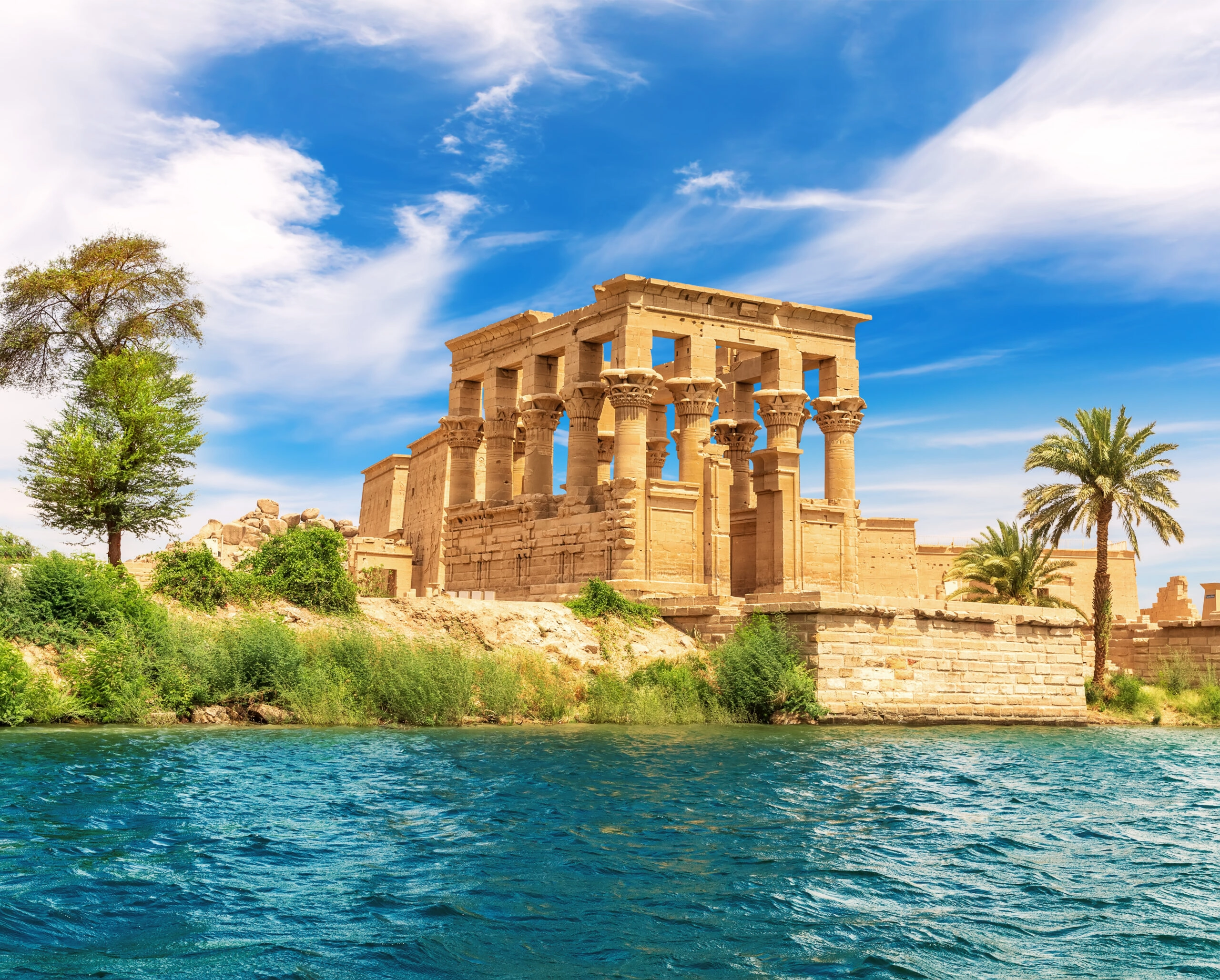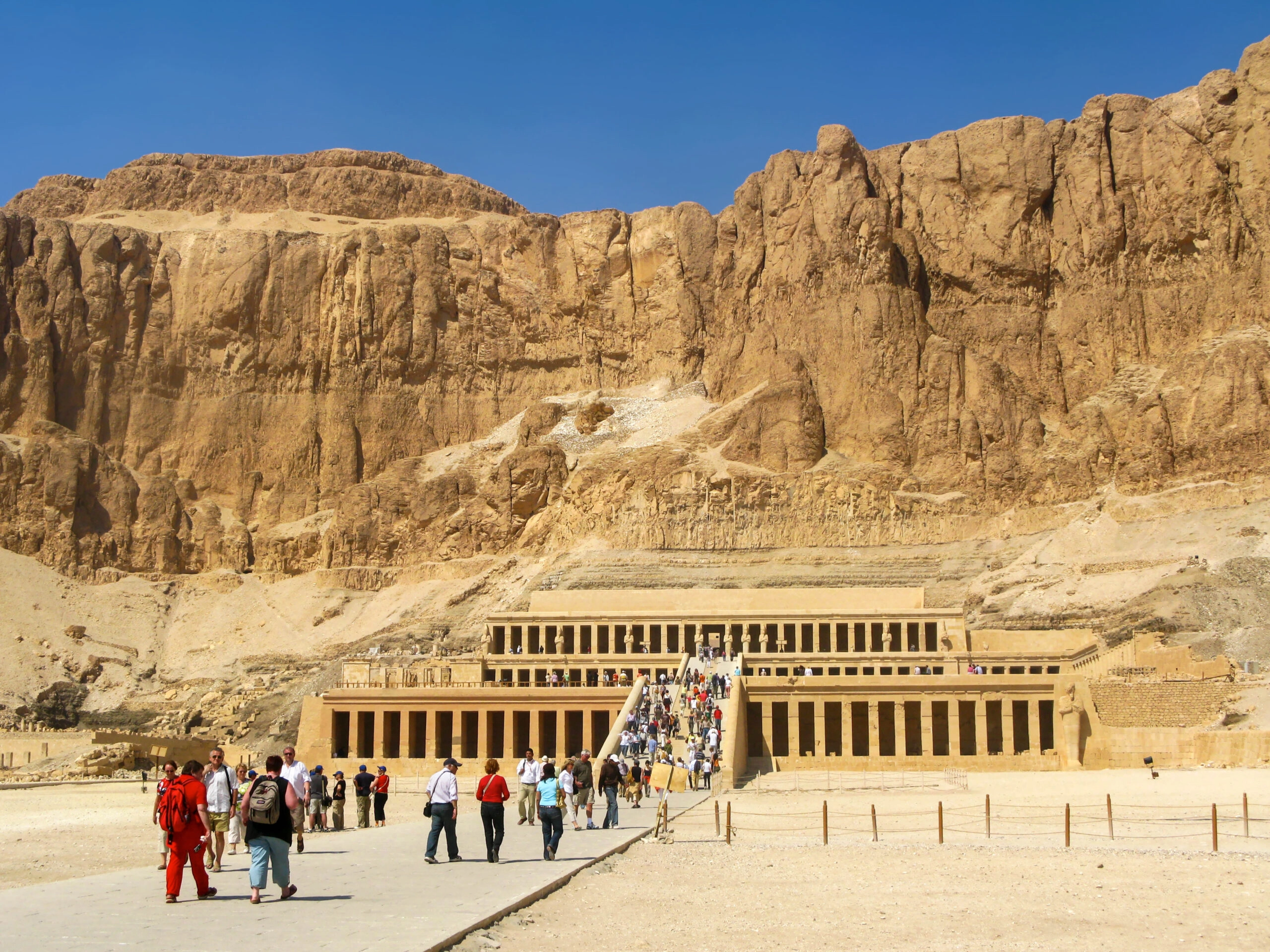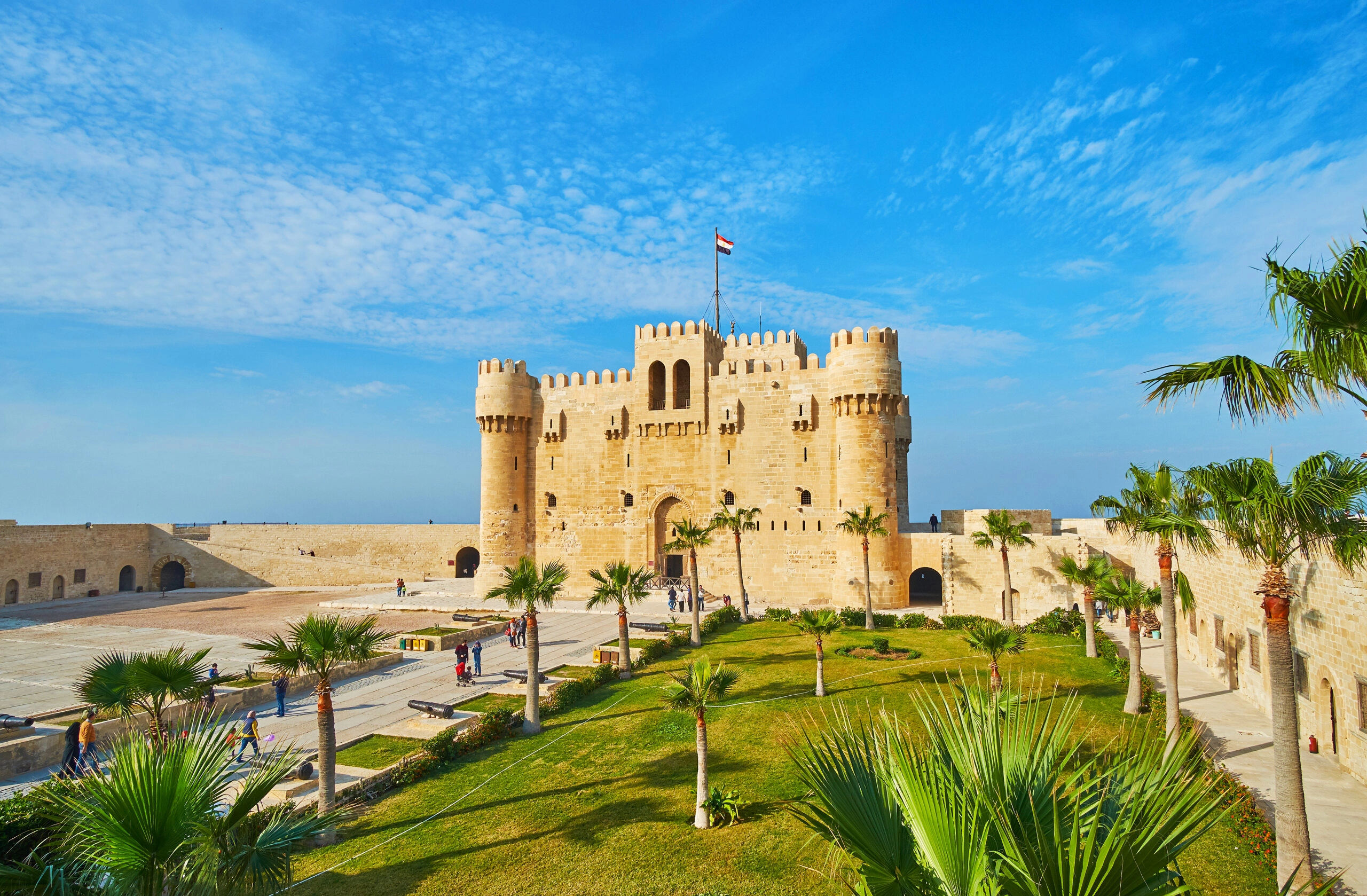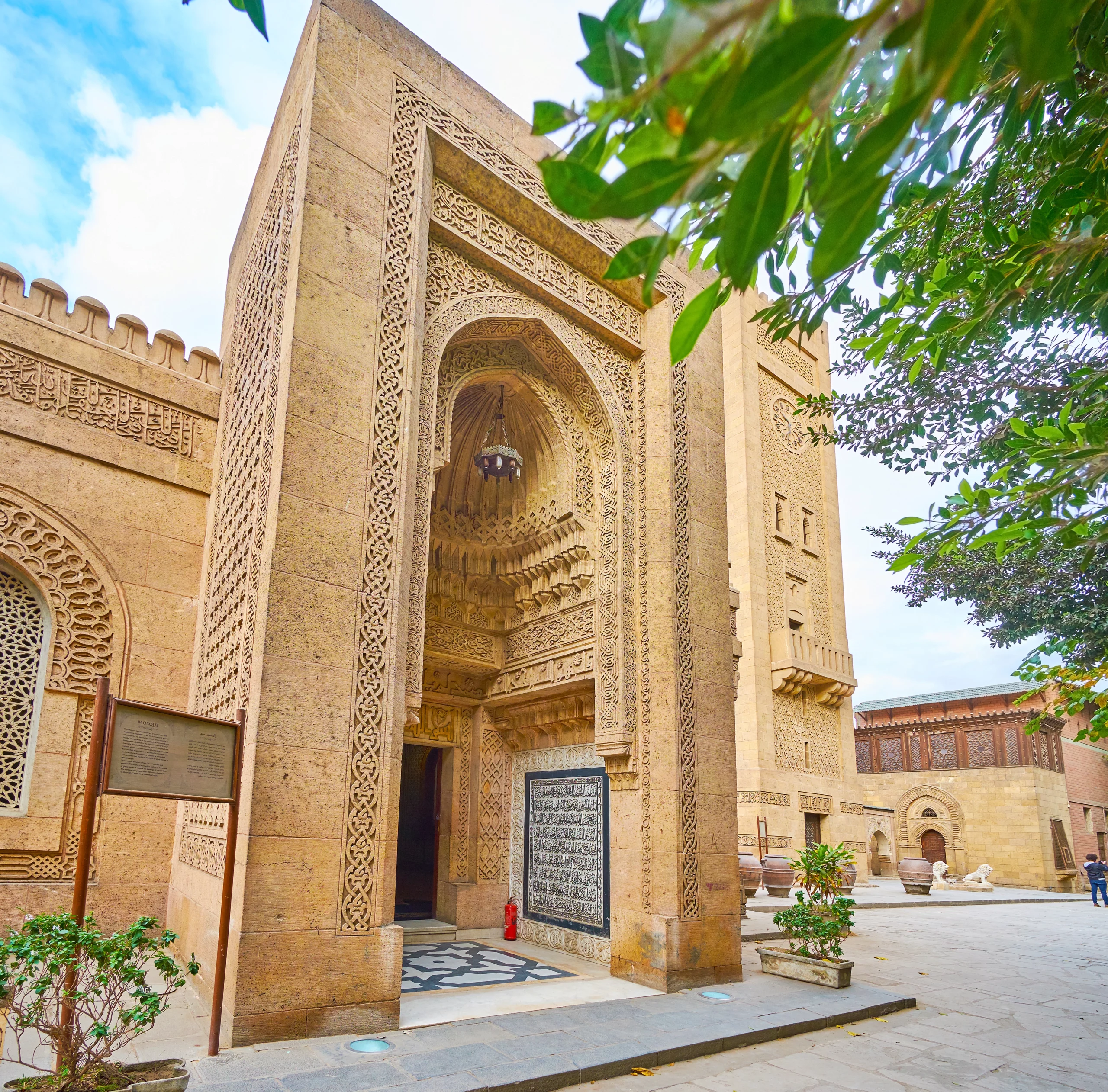A remarkable and memorable aspect of visiting Aswan is the opportunity to interact with the Nubian people and learn about their unique culture and sacred traditions. They have maintained their own language, traditions, food, crafts, and folkloric song and dance.
The Nubian villages in Aswan can be found on Elephantine Island and along the eastern bank of the Nile. Mud homes with domed ceilings are painted in bright colors, sometimes with a mummified crocodile hanging over the door to protect the residents from evil and bad fortune.
The Nubian people are proud of their heritage and famously hospitable, and many of the villages have warm guesthouses to host visitors. The largest and most active Nubian village for visitors is called Gharb Soheil, and the smaller villages of Siou and Koti can be found on Elephantine Island.
Exploring the markets in Nubian villages
To browse the traditional crafts, traditional clothing, bags, and jewelry. You may also find some rare and aromatic spices here to take home.
Get a traditional Nubian henna tattoo!
Nubian women are skilled artists and will create a memento for you to admire.
Stop for a delicious traditional Nubian meal
At any of the local restaurants in the villages. It is common for these meals to be farm-to-table, using homegrown ingredients and free-range poultry. Evening meals may be accompanied by live traditional music and dancing!
Check out the Nubian Museum
Which houses an impressive 3,000 artifacts related to Nubian history and culture. Study the evolution of the Nubian culture beginning with pieces dating back to ancient Nubia and the Kingdom of Kush leading up to the present-day. An impressive collection of historic photos shows the transfer of the temples of Philae and Abu Simbel to rescue them from the rising waters of Lake Nasser.






















